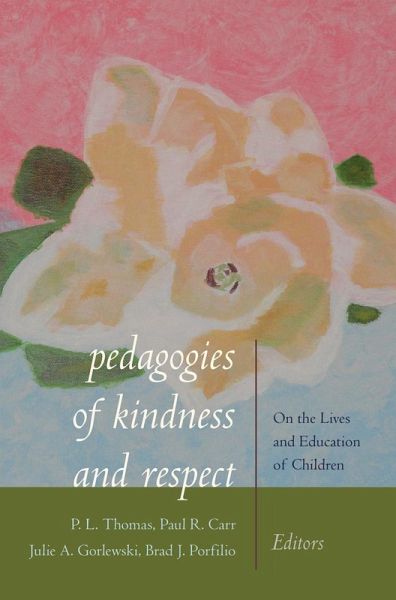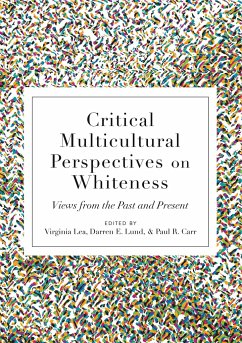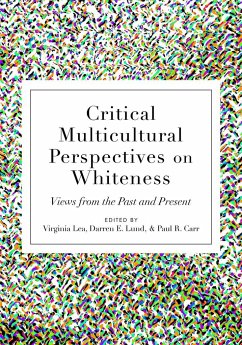
Pedagogies of Kindness and Respect
On the Lives and Education of Children
Herausgegeben: Thomas, Paul L.; Carr, Paul R.; Gorlewski, Julie A.; Porfilio, Brad J.
Versandkostenfrei!
Versandfertig in 6-10 Tagen
176,60 €
inkl. MwSt.

PAYBACK Punkte
0 °P sammeln!
Pedagogies of Kindness and Respect presents a wide variety of concepts from scholars and practitioners who discuss pedagogies of kindness, an alternative to the «no excuses» ideology now dominating the way that children are raised and educated in the U.S. today. The fields of education, and especially early childhood education, include some histories and perspectives that treat those who are younger with kindness and respect. This book demonstrates an informed awareness of this history and the ways that old and new ideas can counter current conditions that are harmful to both those who are y...
Pedagogies of Kindness and Respect presents a wide variety of concepts from scholars and practitioners who discuss pedagogies of kindness, an alternative to the «no excuses» ideology now dominating the way that children are raised and educated in the U.S. today. The fields of education, and especially early childhood education, include some histories and perspectives that treat those who are younger with kindness and respect. This book demonstrates an informed awareness of this history and the ways that old and new ideas can counter current conditions that are harmful to both those who are younger and those who are older, while avoiding the reconstitution of the romantic, innocent child who needs to be saved by more advanced adults. Two interpretations of the upbringing of children are investigated and challenged, one suggesting that the poor do not know how to raise their children and thus need help, while the other looks at those who are privileged and therefore know how to nurture their young. These opposing views have been discussed and problematized for more than thirty years. Pedagogies of Kindness and Respect investigates the issue of why this circumstance has continued and even worsened today.












